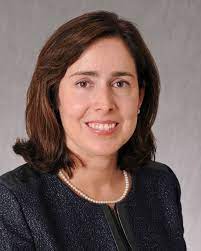Whole health focus: Self-care is more than a trend
- November 14, 2023
- By: Libby Maness
- Community
 We live in a world that constantly discusses self-care and “treating yourself.” To most, self-care is a walk in the park to destress, a bubble bath after a long day at work, a trip to the spa after getting an A on an exam, or dinner at your favorite restaurant just because you made it through the week. But is it more than simply treating yourself?
We live in a world that constantly discusses self-care and “treating yourself.” To most, self-care is a walk in the park to destress, a bubble bath after a long day at work, a trip to the spa after getting an A on an exam, or dinner at your favorite restaurant just because you made it through the week. But is it more than simply treating yourself?
Cynthia Powell, an assistant professor in the Department of Personalized Health and Well-Being at The University of North Texas Health Science Center at Fort Worth, emphasizes that self-care is not merely a fleeting trend; rather, it is essential for overall well-being and Whole Health.
While self-care does include fun ways to “treat yourself,” Powell emphasizes making sure the things you are doing are contributing to your Whole Health. She says it’s important to remember how the World Health Organization defines self-care when taking care of yourself.
“The ability of individuals, families and communities to promote health, prevent disease, maintain health, and cope with illness and disability with or without the support of a health worker,” she said.
The WHO also recognizes individuals as proactive participants in overseeing their health care across various domains such as health promotion, disease prevention and control, self-medication, caregiving for dependents and more. Self-care serves as a supplemental framework to the health care system as individuals manage their health.
When used with the intention of maintaining your Whole Health, self-care actually promotes positive health outcomes, enhances one’s ability to effectively manage stress and builds resilience. It involves being in tune with your emotional, mental, spiritual, and physical well-being and knowing when to take action to ensure each area is taken care of.
“Engaging in self-care practices is instrumental in preventing burnout,” Powell said. “It also helps build resilience in overcoming challenging life experiences.
“Eleanor Brownn once said, ‘Rest and self-care are so important. When you take time to replenish your spirit, it allows you to serve others from the overflow. You cannot serve from an empty vessel,’ she’s absolutely right.”
Keeping your cup full as a student at HSC
 Powell said self-care for a student at HSC, and any working adult, should include the six pillars of lifestyle medicine – physical activity, a whole-food plant-predominant eating pattern, stress management, restorative sleep, avoiding risky substances and maintaining positive social connections. It’s also important for students to be aware of, and have access to, valuable resources at HSC and in the community that provide support when they are facing academic, personal or professional challenges.
Powell said self-care for a student at HSC, and any working adult, should include the six pillars of lifestyle medicine – physical activity, a whole-food plant-predominant eating pattern, stress management, restorative sleep, avoiding risky substances and maintaining positive social connections. It’s also important for students to be aware of, and have access to, valuable resources at HSC and in the community that provide support when they are facing academic, personal or professional challenges.
Resources at HSC include the Office of Care and Civility, academic counseling, writing support, tutoring, student food pantry, career advising, student coaching and the HSC Student Health Clinic.
“If one isn’t focusing on the pillar of self-care, they aren’t fully engaged in their Whole Health,” Powell said. “These resources offered at HSC allow our students to take an active role in their self-care so they can continue to excel in school and life.”
A profession built on whole health and self-care
Self-care is incorporated throughout the Master of Science in Lifestyle Health Sciences and Coaching program at HSC. Through a collaboration with an interprofessional team in the Department of Personalized Health and Well-Being, they are able to emphasize delivering innovative educational programs and research initiatives that blend evidence-based lifestyle medicine with coaching competencies endorsed by the National Board for Health and Wellness Coaches.
“Whether students are developing a longitudinal Wellness and Resilience Action Plan, engaging in research on recent developments in lifestyle health, honing their coaching skills in real-time, or completing a capstone project, our graduates develop the skills needed to empower others in achieving genuine self-care,” Powell said.





Social media